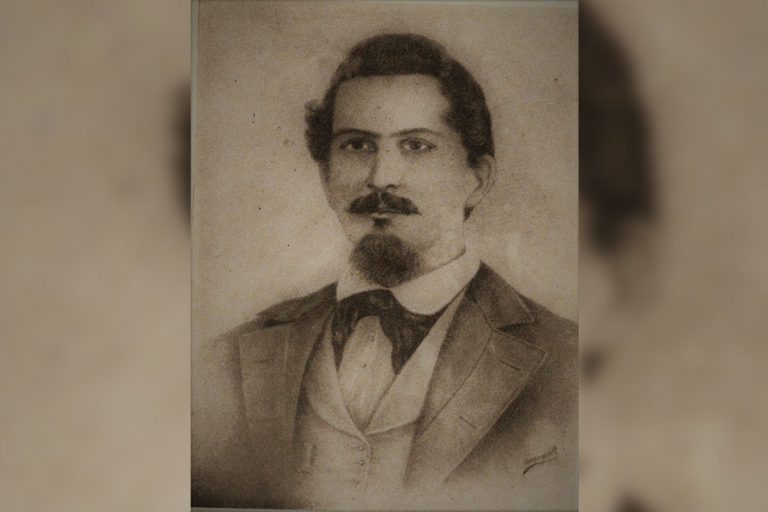A significant event
Puerto Príncipe, today Camagüey, was the protagonist of primitive events in the set of historical processes on the Island of Cuba, in favor of a Spanish anti-colonial thought and libertarian action.
In 1843, the document of Joaquín de Agüero that granted freedom to those enslaved under his authority, before 1868 is an example:
Let it be known that I, Joaquín de Agüero, of this neighborhood grant: that according to my own will I free the following slaves: Gregorio, Creole Chinese, about forty-five years old, Victoriano, idem, eight to nine years old; Juan de la Cruz, a mulatto, about forty; Lucas, about thirty-five years old; what I had by inheritance from my parents. (a) black Creole, about twenty-six years old, that I received from Don Andrés Torres, and Casimiro, twenty-seven years old, that I had by donation of Mrs. Macedonia de Estrada, free of charge … as of today I withdraw from the real and personal shares that the enslaved enunciations had, transferring them out of sheer liberality and without any other interest …
Before the notary José R. Castellanos, Agüero and Agüero with this public deed, freeing his slaves, he dismayed not only the small homeland, but also the governmental structure of the metropolis based on the colony, by representing itself as an enemy of Spain.
Such defiant behavior is compounded, considering that Puerto Príncipe had the fewest freed population after the Western region. These former serfs later became tenants in El Redentor estate of their former master, when they were given lots of land, some livestock and farm implements, so that they could cultivate the land at his own expense.
In 1851, Puerto Príncipe prepares a coup against colonial power
At the beginning of the year 1851, the Liberating Society of Puerto Principe, developed actions based on an insurgent uprising. Upon being discovered, the repressive Spanish authorities as of May 3rd, deployed a strategy of imprisoning the suspects in the neighborhood with threats of execution.
The adversities did not disturb the plans of the leader Joaquín de Agüero, and July 4th was the day chosen for the uprising, at the “San Francisco del Jucaral” farm in the jurisdiction of Cascorro, Guáimaro with 44 men.
Its purpose was to free Cuba from the colonial system; for which it extended with its libertarian influences to the East and Center regions of the Island.
Why the July 4th?
The symbolic value of the beginning of the independence of the Thirteen English Colonies of North America is wielded. Consequently, they made clear that their identity was in line with the principles of progress, democracy and spirit of colonial separation of this nation.
Likewise, a Declaration of Independence is established with the following scope:
We have gathered, protesting before men that, for the reasons indicated, we do not want to live such a life any longer. In fact and in law we constitute ourselves in open rebellion against all acts or laws that emanate from our old metropolis; We do not a acknowledge any authority of any kind and category whatsoever, whose appointments and powers do not come exclusively from the majority of the people of Cuba, only a moral entity whom we recognize to give laws in the person of their representatives.
This declaration reflects not only their separatist principles already stated, but among its signatories is the mulatto Gregorio, one of his former servants, who also risen up on July 4th; noting the inclusive principle from the multiracial perspective of the Cuban nation.
On the other hand, female participation from the multilateral point of view is significant. They sold their jewels, which were involved in the economic contribution, emotional support in insurgent behaviors.
It highlights a society with primitive patterns of independence, anti-slavery, interconnected to local and universal contexts and to national and international social networks.
Transcendence
The uprising of San Francisco de Jucaral led by Joaquín de Agüero y Agüero and his companions is distinguished by its deep roots essentially independent, anti-colonial, patriotic; anchored in visions of democracy and progress for a country that at that time was ruled by an ignominious power.
Bibliography
Alfonso López, Félix Julio (2010) “Joaquín de Agüero en el arduo camino de la libertad” en Los placeres de la Historia. Ediciones UNION. Ciudad de La Habana, Cuba.
Cento Gómez, Elda: (2009) El camino de la independencia. Joaquín de Agüero y el alzamiento de San Francisco de Jucaral. Editorial Ácana, camagüey, Cuba
Juárez Cano, Jorge (2017) Apuntes de Camagüey. Ediciones El Lugareño, Camagüey, Cuba.
Rivas, Miguel Antonio (1951) Joaquín de Agüero y sus compañeros. Ed. Lex., La Habana, Cuba.
Translated by: Aileen Álvarez García






